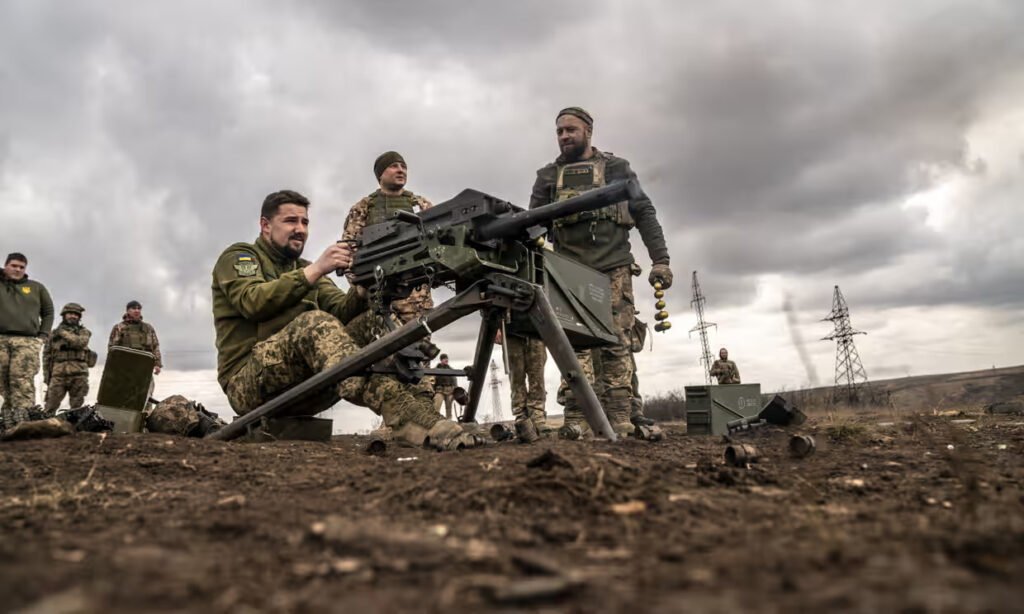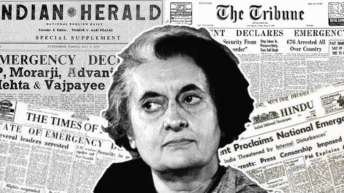|
Listen to article
Getting your Trinity Audio player ready...
|

In the Samarkand summit of SCO, held on 16 September 2022, Prime Minister Modi directly told President Putin when they met on the sidelines of the conference that “this is not the era of war.” He meant the Ukrainian war. Putin chuckled and looked aside. Perhaps he thought that the words of the Indian Prime Minister did not carry much significance. Indian and Russian friendship is time-tested. Its roots are deep and strong. This friendship has gone through the litmus test not once, not twice, but several times, and every time it has held true.
PM Modi’s advice to Putin was not an upbraiding; not at all. It was a very sincere and statesmanlike observation and Modi said it frankly because he knew he was talking to a great friend of India. The interest of Russia was uppermost in his mind.
The Ukraine war has stretched on for more than two years; its end is still elusive. The losses on both sides, when fully asessed, will be mind-boggling. In particular, the loss of human lives and resources is most lamentable. The question is whether this entire catastrophe is justifiable? In other words, should waging wars through expendable proxies become acceptable to contemporary society? We don’t think it should. It is not the clash of civilizations as had been predicted by some thinkers in the West; it is a clash of ideologies and approaches. It is a struggle for one-upmanship. It is a war fostered by the theory of “I am the king of the forest”.
Horrendous consequences
Recently we received the news that some Indian citizens were lured by a Dubai-based agency recruiting labourers for jobs in foreign countries. The applicants were charged a hefty amount of INR 300,000 for being given a job. When the applicants arrived in Moscow, their travel documents including passports were seized by the airport authorities. One of them, who was told would be given the job of a house cleaner, was conscripted and sent to the Ukraine war front. He cursed himself for falling in a trap.
The matter has been brought to the notice of the Indian Embassy in Moscow, which said it had received complaints from some Indian citizens and the matter was being investigated. The point to be made is that this action demonstrates Russia’s shortfall in manpower to fight the war given the ‘full employment situation’ in its war economy, to the extent that labourers of foreign countries are duped and sent to the warfront. It may not be the state agency working towards that purpose; nevertheless, it reflects the serious situation the Ukrainian war has created.
We may cite another example in the same vein. The reports are that Israel is facing an acute shortage of manpower to run its industries. Tel Aviv has decided to import about seventy thousand laborers from foreign countries to meet the requirements of running her industries. India is given a quota of ten thousand recruits. Our information is that the recruitment process has already begun in India.
We should not discourage the movement of people in their quest for better living standards. But we need to understand what a war means in contemporary times. A war, whether thrust upon or initiated by a state, is a curse and its consequences are disastrous even to people living far away from the war theatre.
Asylum seekers, not war veterans
How much the contemporary youth hate and abhor war will be understood by the ways youth want to escape the stranglehold of conscription in the name of war for national integrity and sovereignty.
While about 15 percent of Ukraine’s population of military-age appears to have fled abroad to avoid being conscripted or reporting for duty, Up to one million Russians are said to have gone abroad to avoid going the war. The Business Insider of 25th February noted that: ‘South Korea is experiencing a dramatic surge in asylum seekers from Russia, per a recent government report cited in the Korea Herald’.
In 2023, over 5,000 Russian nationals submitted refugee applications, a five-fold increase from the previous year’s total of 1,038. This surge nearly matches the total number of Russian asylum seekers recorded over 26 years, from 1994 to 2019.
President Vladimir Putin’s military mobilization of 300,000 individuals in September 2022 pushed many Russian men to avoid conscription by seeking refuge abroad. Up to one million Russians had left the country, an Economist report stated in August 2023. Nevertheless, it appears that the targeted number of conscripts was reached without too much difficulty.
In February 2023, Politico reported that two Russian citizens who had fled to evade conscription had been stranded at Incheon International Airport near Seoul since October. The men were granted the opportunity to enter Korea, but the asylum-seeking process itself could take years, AFP reported at the time.
The influx of asylum seekers isn’t limited to Russians. Last year, South Korea reported 18,838 refugee applications, mostly for economic and political reasons, marking a 63% increase from the previous year. Nationals from Kazakhstan (2,094), China (1,282), Malaysia (1,205), and India (1,189) also contributed to the surge. Russian applicants accounted for 30.5% of the total appeals, Korea Bizwire reported. The majority of asylum applications cited “political opinions” as the primary reason for seeking asylum, with 4,580 applicants objecting to conscription, 2,665 concerned about religious issues, 1,205 worried about their membership in specific social groups, 887 seeking to reunite with their families, and 719 citing racial factors.
Despite the surge in asylum applications, South Korea’s approval rate for refugee status remains low. Out of 5,950 cases evaluated last year, only 1.7 per cent – or 101 applicants – were granted refugee status.
The Organisation for Economic Cooperation’s average approval rate is 24.8 percent, making South Korea a particularly restrictive country regarding asylum applications, the Korea Herald reported
In conclusion, we come to the stark reality that the youth do not want a war and do not want to get killed for unclear objectives altough this has always been the case in a substantial portion of the population. In both the World Wars there were many deserters and ‘draft-refugees’ on all sides but today international travel is much easier and offers many opportunities for people to leave their countries. Nationalism has lost much of its sheen in the wake of multilateralism. In this background, those involved in the Ukrainian war should reassess their perceptions and keep peace with the march of the times.






Add comment